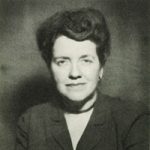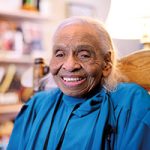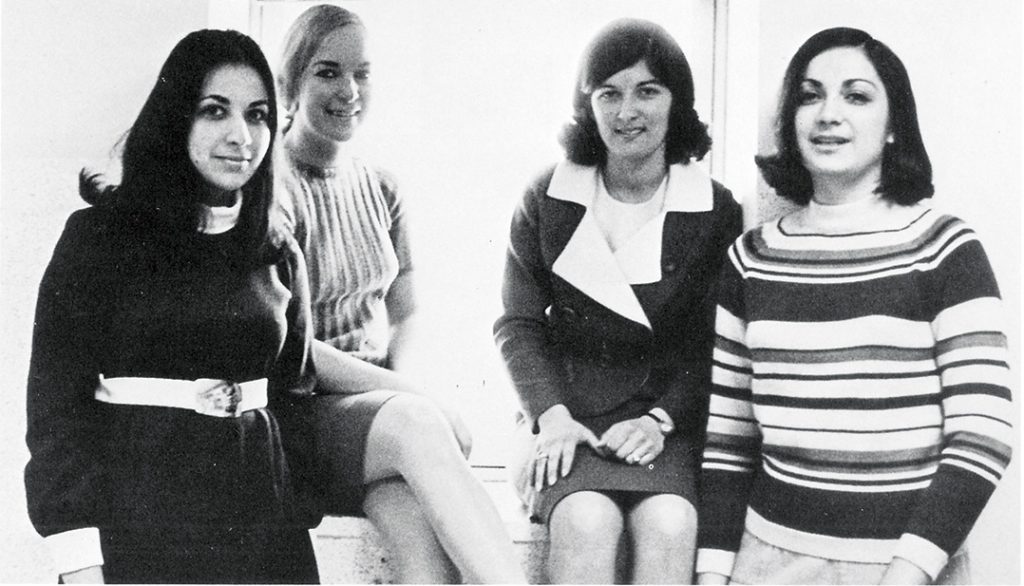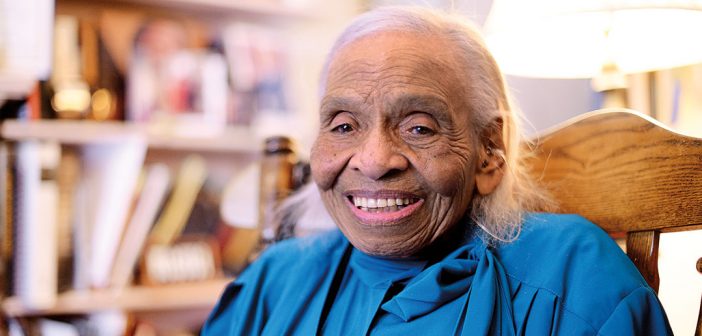Today is International Women’s Day, a celebration of the social, economic, cultural, and political achievements of women. Read about some of Fordham’s own trailblazing women, from the first female dean at a Jesuit school to the first female vice presidential nominee.
One of the First Black Women Admitted to the New York Bar Graduated from Fordham Law
 In 1921, Ruth Whitehead Whaley became the first black woman to enroll at Fordham Law School. She graduated at the top of her class in 1924 and, one year later, became one of the first black women admitted to practice law in New York.
In 1921, Ruth Whitehead Whaley became the first black woman to enroll at Fordham Law School. She graduated at the top of her class in 1924 and, one year later, became one of the first black women admitted to practice law in New York.
Fordham Had the First Female Dean of Any U.S. Jesuit University
 In 1939, Fordham chose Anna E. King, Ph.D., to be dean of the School of Social Service. King became not only Fordham’s first female dean but also the first female dean at any Jesuit university in the country. In 1945, she was elected president of the American Association of Schools of Social Service. That same year, she initiated the school’s first master’s degree program. She served as dean until 1954.
In 1939, Fordham chose Anna E. King, Ph.D., to be dean of the School of Social Service. King became not only Fordham’s first female dean but also the first female dean at any Jesuit university in the country. In 1945, she was elected president of the American Association of Schools of Social Service. That same year, she initiated the school’s first master’s degree program. She served as dean until 1954.
The First Black Woman in the Coast Guard Later Taught Psychology at Fordham
 As a young girl in Oklahoma, Olivia Hooker, Ph.D., survived the 1921 Tulsa Race Riot, hiding under her kitchen table as white men burned down her affluent black community. Twenty-four years later, she became the first black woman to enlist in the U.S. Coast Guard. She taught psychology at Fordham from 1963 to 1985. In 2015, shortly before celebrating her 100th birthday, she reminisced about her time at Fordham: “Everybody helped each other and thought highly of each other and loved to be there.”
As a young girl in Oklahoma, Olivia Hooker, Ph.D., survived the 1921 Tulsa Race Riot, hiding under her kitchen table as white men burned down her affluent black community. Twenty-four years later, she became the first black woman to enlist in the U.S. Coast Guard. She taught psychology at Fordham from 1963 to 1985. In 2015, shortly before celebrating her 100th birthday, she reminisced about her time at Fordham: “Everybody helped each other and thought highly of each other and loved to be there.”
The Geraldine Ferraro Rose Grows on Campus
In 1984, Walter Mondale, the Democratic nominee for president, selected New York Congresswoman Geraldine Ferraro, LAW ’60, as his running mate—the first time a national party nominated a woman for vice president of the United States. “There are no doors we cannot unlock,” the Fordham Law alumna said during her acceptance speech at the Democratic National Convention. The ticket lost, but Ferraro helped place a new generation of women on equal—and more secure—footing with their male counterparts.
In 2007, Fordham honored her by hosting the ceremony introducing the Geraldine Ferraro rose. Sales of the hybrid tea rose funded studies and treatment of multiple myeloma, which Ferraro lived with for more than a decade before her death in 2011. The University planted the rose on the Lincoln Center campus.
Women Had Their Own Undergraduate College for 10 Years

In fall 1964, the University opened Thomas More College, an undergraduate school for women. Though women had been earning Fordham degrees in law, education, and social service for decades, the Thomas More students initiated a profound cultural shift. “It was a man’s world when we got here, but I think we quickly changed that,” Margaret Bia, M.D., TMC ’68, a member of the school’s first graduating class, recalled in 2014. The college closed in 1974, after Fordham College at Rose Hill began accepting women.
The Pioneer of Psychometrics was a Fordham Professor
 Anne Anastasi, Ph.D., received the National Medal of Science from President Ronald Reagan in 1987. Prior to that, Anastasi taught psychology at Fordham from 1947 to 1985, and also chaired the department. Nicknamed the “test guru”, Anastasi wrote a textbook, Psychological Testing, in 1954 that is considered by many to be the definitive text in the field of testing. The book is in its 9th printing.
Anne Anastasi, Ph.D., received the National Medal of Science from President Ronald Reagan in 1987. Prior to that, Anastasi taught psychology at Fordham from 1947 to 1985, and also chaired the department. Nicknamed the “test guru”, Anastasi wrote a textbook, Psychological Testing, in 1954 that is considered by many to be the definitive text in the field of testing. The book is in its 9th printing.
In 2008, Fordham created the Anne Anastasi Chair in Psychometrics and Quantitative Psychology in her honor; David V. Budescu, Ph.D., is the holder of the chair.




